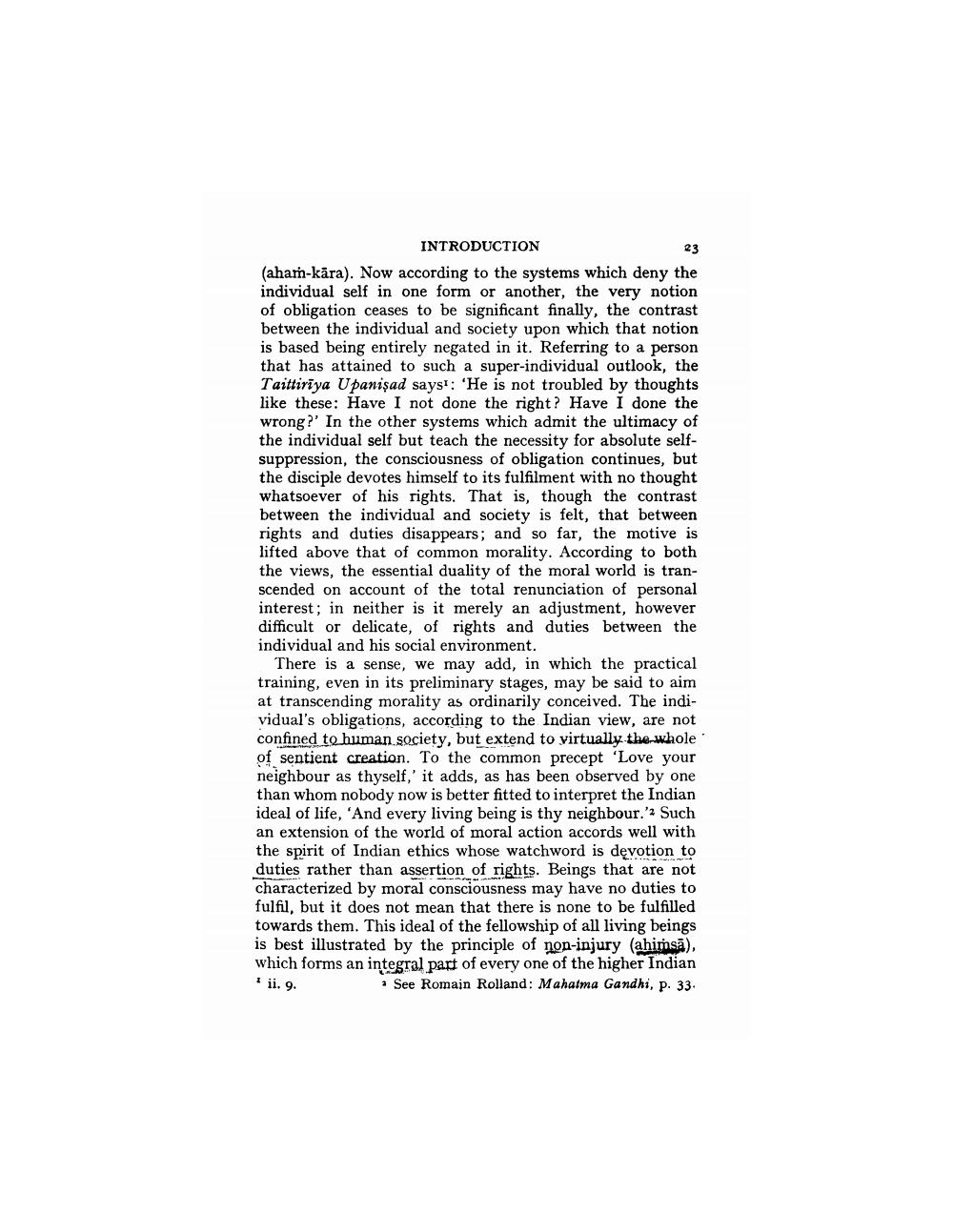________________
INTRODUCTION
23
(aham-kāra). Now according to the systems which deny the individual self in one form or another, the very notion of obligation ceases to be significant finally, the contrast between the individual and society upon which that notion is based being entirely negated in it. Referring to a person that has attained to such a super-individual outlook, the Taittiriya Upanisad says: 'He is not troubled by thoughts like these: Have I not done the right? Have I done the wrong?' In the other systems which admit the ultimacy of the individual self but teach the necessity for absolute selfsuppression, the consciousness of obligation continues, but the disciple devotes himself to its fulfilment with no thought whatsoever of his rights. That is, though the contrast between the individual and society is felt, that between rights and duties disappears; and so far, the motive is lifted above that of common morality. According to both the views, the essential duality of the moral world is transcended on account of the total renunciation of personal interest; in neither is it merely an adjustment, however difficult or delicate, of rights and duties between the individual and his social environment.
There is a sense, we may add, in which the practical training, even in its preliminary stages, may be said to aim at transcending morality as ordinarily conceived. The individual's obligations, according to the Indian view, are not confined to human society, but extend to virtually the whole of sentient creation. To the common precept 'Love your neighbour as thyself,' it adds, as has been observed by one than whom nobody now is better fitted to interpret the Indian ideal of life, 'And every living being is thy neighbour.' Such an extension of the world of moral action accords well with the spirit of Indian ethics whose watchword is devotion to duties rather than assertion of rights. Beings that are not characterized by moral consciousness may have no duties to fulfil, but it does not mean that there is none to be fulfilled towards them. This ideal of the fellowship of all living beings is best illustrated by the principle of non-injury (ahira). which forms an integral part of every one of the higher Indian
ii. 9.
* See Romain Rolland: Mahatma Gandhi, p. 33.




